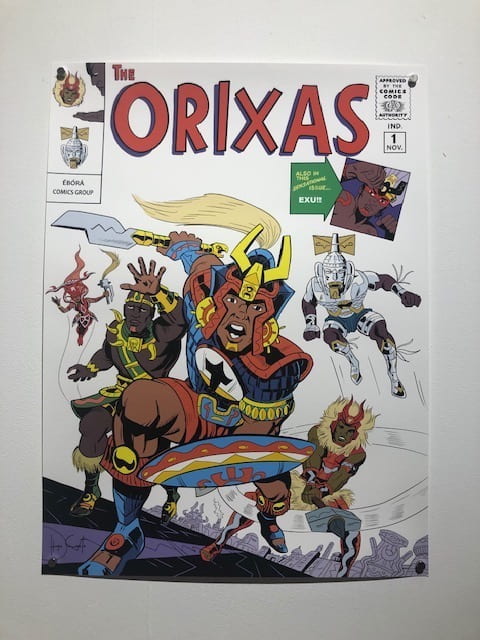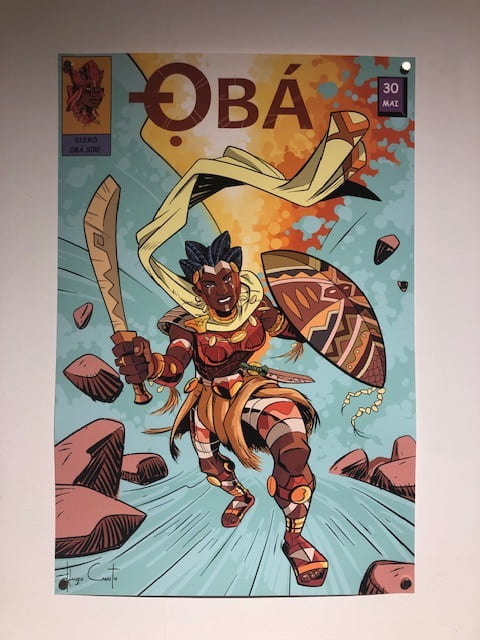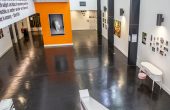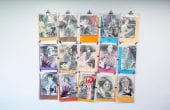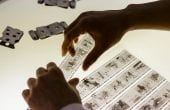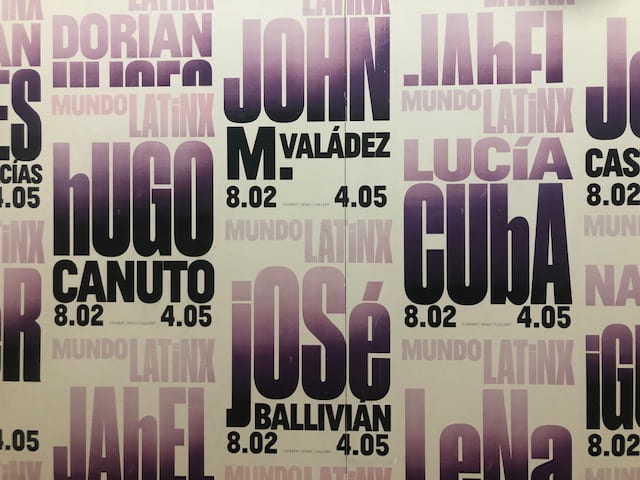
Mundo Latinx (Latinx World) at the Fashion Space Gallery brings together the work of visual artists who raise questions around representation and identity to reveal some of the struggles for visibility, empowerment and justice within current social, political, economic and cultural structures. The selection of works challenges dominant stereotypes constructed through how people look, dress and behave, by showing the processes of affirming, transforming and reinventing heritage and identity. It puts emphasis on works that deal with underrepresented communities, including LGBTQI+, black and indigenous communities, human rights activism and workers’ rights.
Latino/a are both terms first coined in Europe and the US that refer to individuals from Mexico, Central and south America and the Spanish speaking Caribbean. These terms are highly problematic, both in connection to their colonial origin and in how they enforce a perceived singular stereotype and narrative on culturally vastly different countries and communities, misrepresenting people from all these places as sharing a common identity and ethnicity. More recently the term ‘latinx’ is becoming increasingly popular as a gender-neutral alternative that implies a higher degree of inclusivity of diverse communities and people.
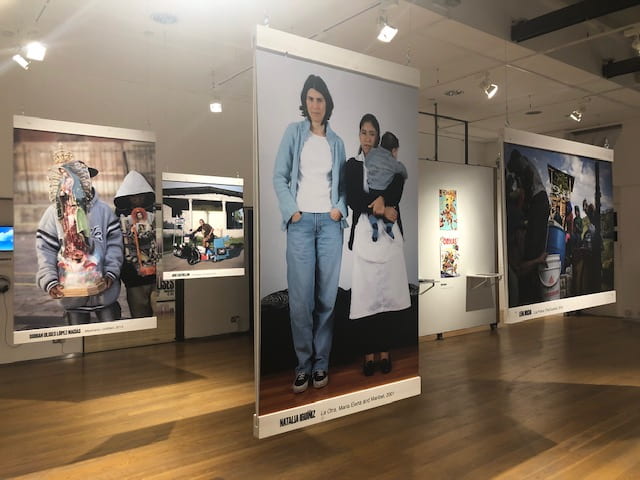
Mundo Latinx (Latinx World) brings together the work of visual artists who raise questions around representation and identity to reveal some of the struggles for visibility, empowerment and justice within current social, political, economic and cultural structures. The selection of works challenges dominant stereotypes constructed through how people look, dress and behave, by showing processes of affirming, transforming and reinventing heritage and identity, it puts emphasis on works that deal with underrepresented communities, including LGBTQI+, black and indigenous communities, human rights activism and workers’ rights.
Including a wide range of media such as film, photography and illustration, as well as textile and fashion design, Mundo Latinx also highlights the permeability of borders, the continual movement of people, which stimulates the formation of new ideas and identities, as well as large diaspora communities. Mundo Latinx opens amidst a challenging political climate, when addressing identity politics and diverse representation, and enabling untold stories to be told, are particularly pertinent and important.
Hugo Canuto is a Brazilian visual artist, comic artist and write, whose work explores the relationship between art, religion and mythology. Contos dos Orixás honours the legacy of the Yoruba culture in Brazil: its religion, myths and legends. Originating from West Africa, the Yoruba peoples culture and knowledge migrated to Brazil and Cuba through the diaspora, as a result if the Atlantic slave trade, evolving into religions such as Candomblé, Santeria and Umbanda.
This graphic novel converges old deities, kings and warriors from Yoruba culture with archetypal superheroes from comic books and visual influences from pop art. Canuto uses the novel as a tool and platform for empowerment, reflection and transformation of perceptions.
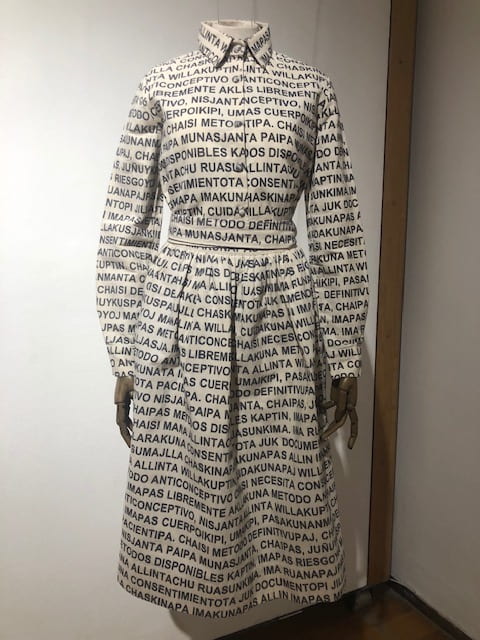
Peruvian fashion designer and scholar Lucia Cuba is focused on issues of gender, biopolitics, health and activism, education and the study of non-western fashion systems. Within her practice, Cuba views fashion design and the exploration of garments and other wearable forms as performative and political devices, thus broadening our understanding of the role of design objects from purely functional, commercial or aesthetic considerations, to social, ethical and political perspectives.
‘Narratives of gender, strength and politics’ is a design and activism project that was created to raise awareness about the cases of forced sterilisation that took place between 1996-2000, during the government of Alberto Fujimori in Peru. The title of this ongoing project refers to an article within the ‘General Health Law of Peru’ which establishes that ‘all persons have the right to choose freely the contraceptive method they prefer, and to receive the appropriate information on the methods and risks’. The projects highlights the discriminatory application of this article, which was mainly exercised on women in indigenous communities, who were purposefully given incorrect information on the procedures. The dress/ garments are inspired by Andean ‘polleras’ or skirts with printed text, in reference to the uniformity and militarisation of public policy.
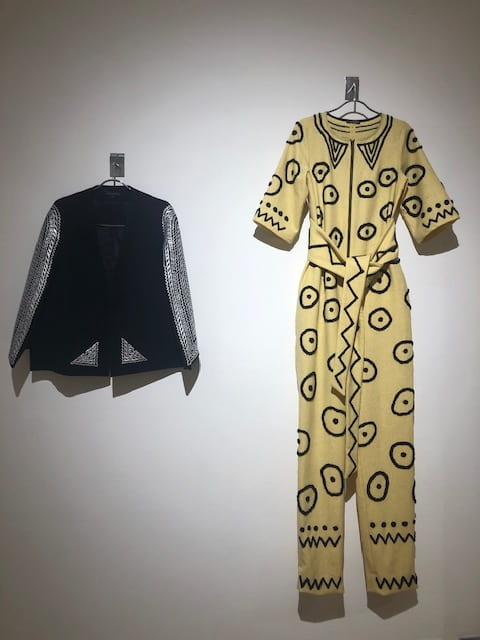
Carla Fernandez is a Mexico-city based fashion label inspired by the textile traditions of Mexico., with a particular focus on their geometric patterns. The design label has gained international acclaim for its approach to preserving the rich cultural heritage of Mexico, by working closely with indigenous artisan communities, each with their own specialist techniques, to create clothing, textiles and homewares with a modem aesthetic. Its contemporary take on hand-crafted methods is proof that ethical fashion can be striking, avant-garde and forward thinking.
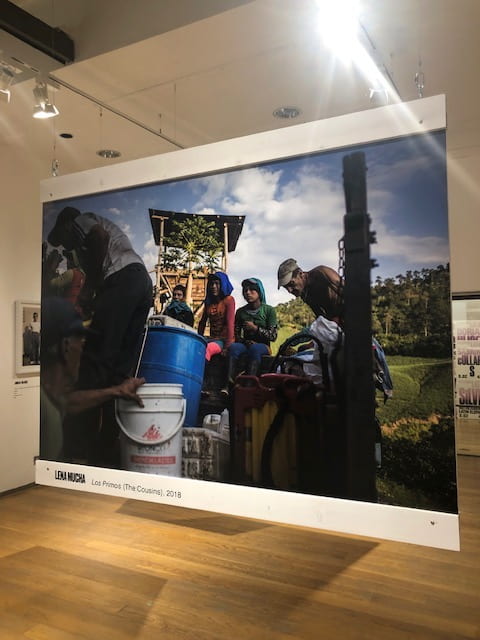
Lena Mucha is German photographer based in Berlin and Colombia. She started practising photography whilst working with NGO’s in Colombia in 2011. Her work focuses on under-reported stories related to migration, human rights, gender and social change within societies and ethnic groups. As one of the only non-Latin American practitioners featured in the exhibition, Mucha’s work is included as an important documentary voice raising awareness of the issues faced by indigenous transgender communities in Colombia.
The series ‘Los Primos’ (the cousins) captures the lives of indigenous transgender women working and living in the mountains of Colombia’s coffee region. These coffee farms of around the village of Santauario have become a sanctuary for the growing number of transgender women rejected by their native Emberá tribe, who label them as ‘primos’ and often punish or banish them from their homes.
To find out more on the exhibition, please visit here.

